The cost to build a high school basketball gym typically ranges from about $5 million to $10+ million in the U.S. Costs vary based on location, size, and materials.
Building a high school basketball gym involves significant planning and investment. Factors influencing costs include land acquisition, construction materials, labor, and amenities like seating, lighting, and flooring. Modern gyms may also integrate advanced technology for scoreboards and sound systems. The overall budget must account for architectural design, permits, and potential land preparation expenses.
Proper budgeting ensures the facility meets safety standards and provides a top-notch environment for athletes and spectators alike. Investing in a quality gym not only boosts school spirit but also enhances community engagement and athletic performance.
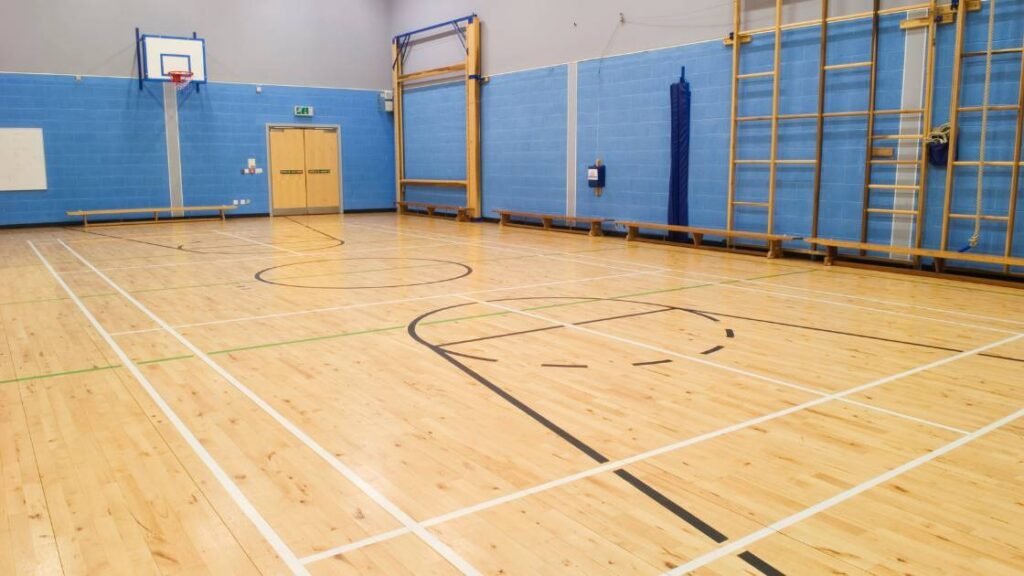
Initial Planning
Building a high school basketball gym requires careful initial planning. This stage is crucial for ensuring that all aspects are covered, from location selection to design layout. Proper planning helps manage costs and avoid surprises later.
Location and Site Selection
Choosing the right location is vital. The site must be easily accessible for students and visitors. Consider proximity to other school facilities. This ensures seamless integration with existing infrastructure.
| Criteria | Considerations |
|---|---|
| Accessibility | Proximity to main roads and public transport |
| Space | Enough area for the gym and parking |
| Utilities | Availability of water, electricity, and sewage |
Also plan for accessibility from the start: provide ADA-compliant routes, seating, and restrooms consistent with the 2010 Standards for Accessible Design, including dispersal of wheelchair seating in assembly areas.
Design and Layout
The design and layout must meet the needs of a high school gym. It should include court dimensions, seating arrangements, and locker rooms.
- Court Dimensions: Standard high school basketball court dimensions are 84 feet by 50 feet (NFHS).
- Seating: Plan for bleachers or seating arrangements to accommodate spectators.
- Locker Rooms: Design locker rooms for both teams with showers and restrooms.
Incorporate modern amenities like scoreboards, sound systems, and lighting. These features enhance the experience for players and spectators.
Budgeting
Building a high school basketball gym is a major project. Proper budgeting is essential to ensure success. This section will explore key areas for budgeting, focusing on estimating costs and identifying funding sources.
Estimating Costs
Estimating the costs of building a high school basketball gym involves several factors. Each component has its own set of expenses. Here’s a breakdown of some common costs:
| Component | Estimated Cost |
|---|---|
| Land Acquisition | $100,000 – $500,000 |
| Construction (hard costs) | Use size × local cost per SF (K–12 buildings commonly ~$275–$350+/SF; gyms trend higher based on volume and systems) |
| Interior Finishes | $200,000 – $600,000 |
| Equipment | $50,000 – $200,000 |
| Soft Costs (design, permits, testing, commissioning, FF&E) | Plan for ~20%–40% of hard costs |
Each of these costs can vary. The location and size of the gym affect the total cost. Include owner contingency and escalation (often ~10%–15%) to avoid budget overruns.
Funding Sources
Finding the right funding sources is crucial. Here are some common sources for funding a high school basketball gym:
- Government Grants: Many schools receive grants for sports facilities.
- Private Donations: Local businesses and alumni often contribute.
- Fundraisers: Schools can organize events to raise money.
- Loans: School districts sometimes take loans for construction projects.
- Partnerships: Partnering with local organizations can provide additional funds.
Each funding source has its own advantages. Combining multiple sources often provides the best results. Proper planning and community involvement can greatly improve fundraising efforts.
Construction Materials
Building a high school basketball gym requires specific construction materials. These materials impact the gym’s functionality and durability. Below are the essential materials you’ll need.
Flooring Options
The flooring is crucial for a basketball gym. It needs to be safe and durable. Here are some popular options:
- Hardwood Flooring (maple sports floor): Most common for competition courts. Installed cost typically ~$12 to $26 per square foot, depending on system and options.
- Vinyl/Synthetic Flooring: Budget-friendly and durable for multi-use. Installed cost typically ~$10 to $22 per square foot.
- Rubber/Urethane Systems: Durable and shock-absorbent for multipurpose use. Installed cost typically ~$10 to $22 per square foot.
Wall and Ceiling Materials
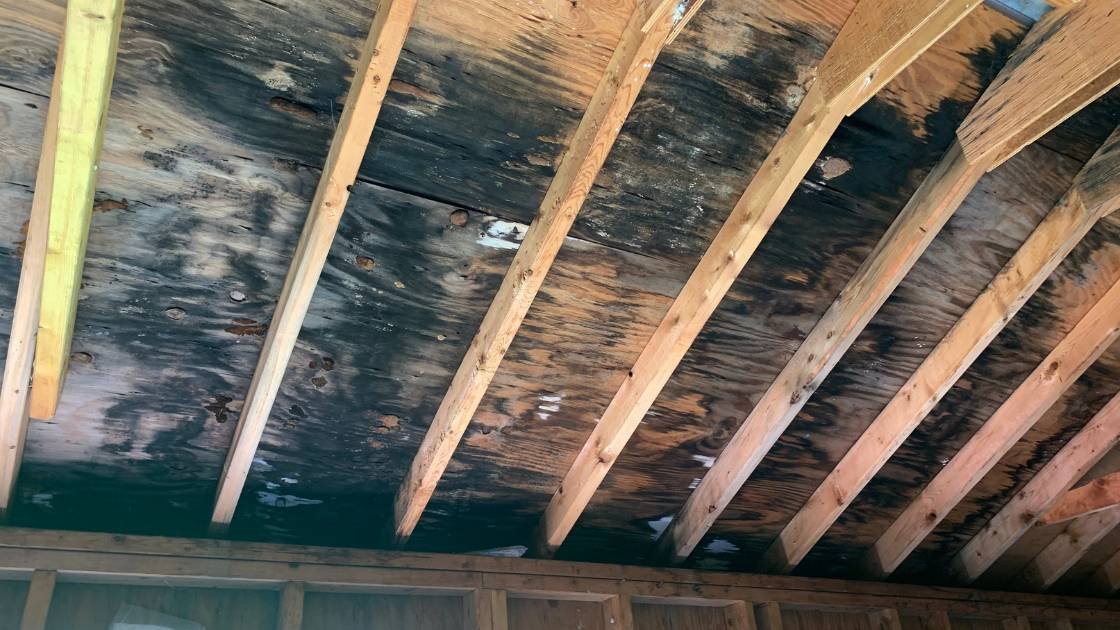
Walls and ceilings also play a significant role in gym construction. They need to be sturdy and soundproof. Consider these options:
| Material | Cost per Square Foot | Benefits |
|---|---|---|
| Concrete | $5 – $10 | Strong, durable, and fire-resistant |
| Drywall | $1 – $3 | Cost-effective and easy to install |
| Acoustic Panels | $2 – $4 | Soundproof and improves acoustics |
Choosing the right construction materials is essential. It ensures the gym is safe and durable. Consider your budget and needs when selecting materials.
Labor Costs
Building a high school basketball gym can be a costly endeavor. One of the biggest expenses is labor costs. Labor costs can vary widely depending on several factors. This section will break down the different aspects of labor costs.
Contractors and Builders
Contractors and construction managers are crucial for constructing a basketball gym. They manage the entire project, ensure it is built to code, and keep the schedule on track. Fees and markups commonly total ~10% to 20% of trade costs, depending on delivery method and scope.
Here is a general breakdown of potential fee allowances:
| Project Cost | Contractor/CM Allowance (10%) | Contractor/CM Allowance (20%) |
|---|---|---|
| $500,000 | $50,000 | $100,000 |
| $1,000,000 | $100,000 | $200,000 |
| $2,000,000 | $200,000 | $400,000 |
Specialized Labor
Specialized labor includes electricians, plumbers, and HVAC technicians. These workers handle specific tasks that require expertise. Their fees can add up quickly. For instance, electricians might charge $50 to $100 per hour.
Here is a list of common specialized labor costs:
- Electricians: $50–$100 per hour
- Plumbers: $45–$90 per hour
- HVAC Technicians: $60–$120 per hour
These specialized workers are essential for ensuring the gym is safe and functional. Their work includes installing lighting, plumbing, and climate control systems.
Equipment And Fixtures
Building a high school basketball gym involves a variety of equipment and fixtures. These elements ensure the gym functions well and provides a great experience for players and spectators.
Basketball Hoops
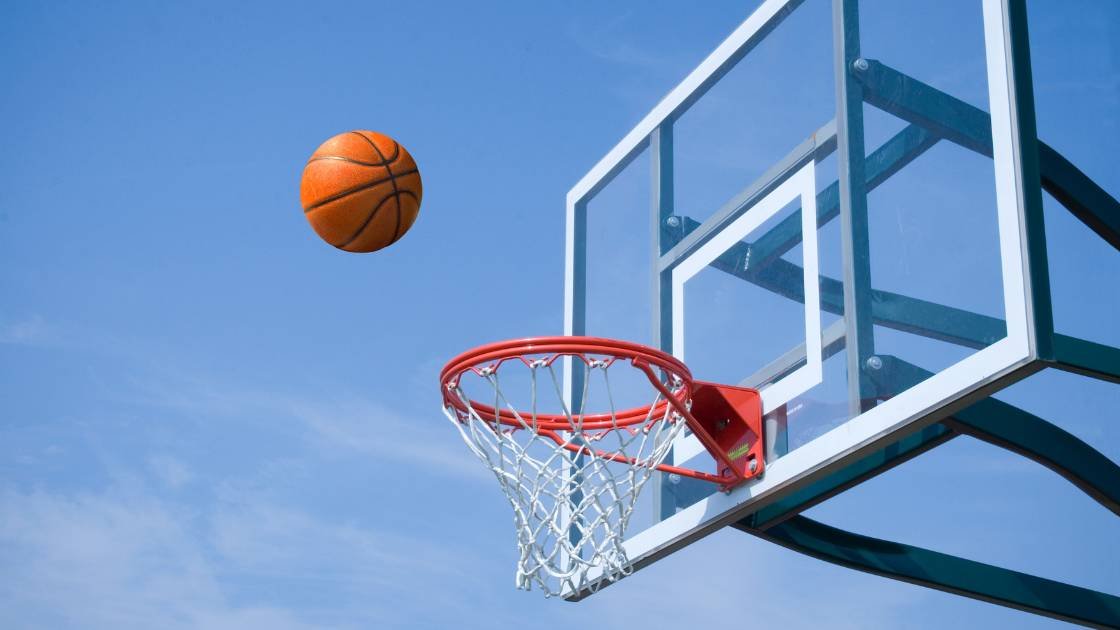
Basketball hoops are essential for any gym. For competition gyms using ceiling-suspended systems, typical costs range from $7,500 to $11,000 per unit depending on configuration; complete motorized packages can reach ~$17,500 each. This generally includes the glass backboard, breakaway rim, structure, and motorized winch/height adjuster.
It is crucial to choose durable hoops that can withstand rigorous use. Adjustable hoops allow for different age groups to use the gym.
Seating and Bleachers
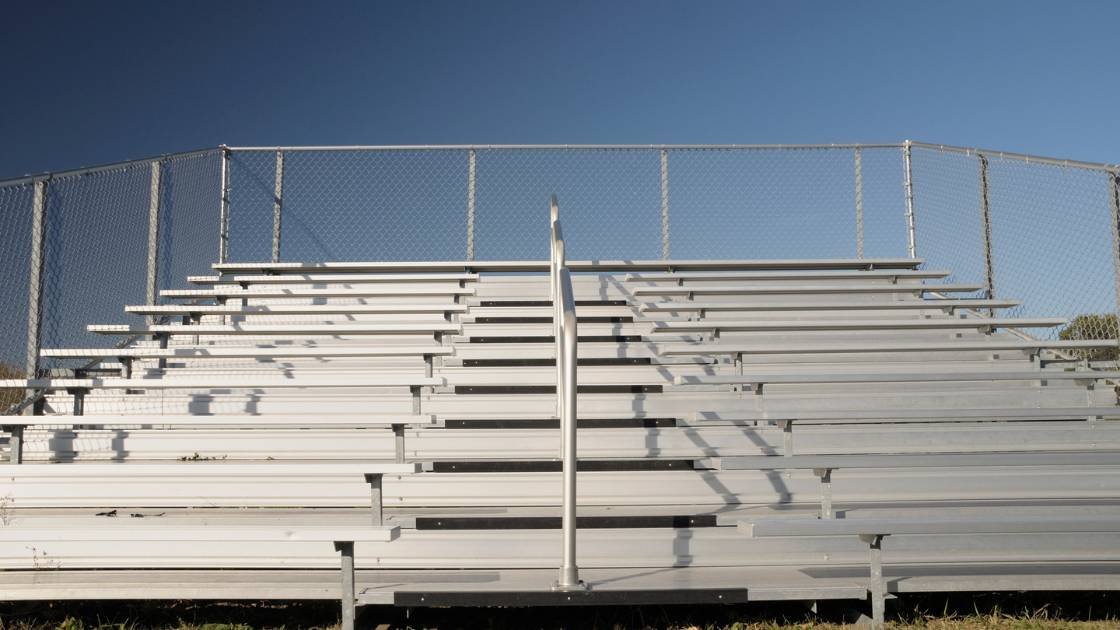
Seating is vital for accommodating spectators. Telescoping indoor bleachers are common for high school gyms. Budget on a per-seat basis and ensure compliance with ICC-300 (bleachers) and ADA seating dispersal requirements.
| Type | Cost (Planning) |
|---|---|
| Telescoping indoor bleachers (per seat) | $100 – $150 per seat |
| Fixed/permanent bleachers (per seat) | $100 – $200 per seat (configuration-dependent) |
| Portable tip-and-roll bleachers | $3,000 – $7,000 per 3-row, 15′ section |
Technology and Amenities
Building a high school basketball gym involves numerous costs. Technology and amenities play a crucial role in modern gyms. These features enhance the overall experience. Let’s explore the essential technological aspects.
Lighting and Sound Systems
Proper lighting ensures visibility during games. LED lights are energy-efficient and bright. They can cost between $50,000 to $150,000. The gym also needs a sound system for announcements and music. A quality sound system may cost around $25,000 to $75,000.
Scoreboards and Display Screens
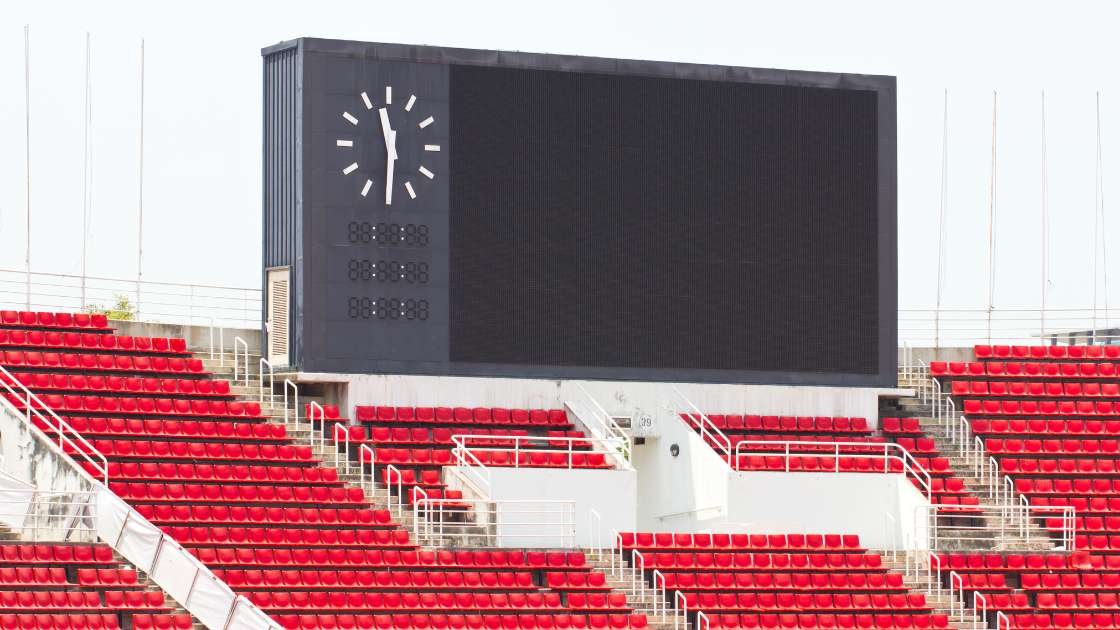
A modern gym requires scoreboards and display screens. These keep players and fans updated. A basic fixed-digit scoreboard might cost $10,000 – $30,000. Larger video display screens can range from $50,000 – $200,000+ depending on size and resolution. Display screens offer real-time stats and replays. These features make the games more engaging.
| Item | Estimated Cost |
|---|---|
| LED Lighting | $50,000 – $150,000 |
| Sound System | $25,000 – $75,000 |
| Basic Scoreboard | $10,000 – $30,000 |
| Digital Display Screens | $50,000 – $200,000+ |
Maintenance and Upkeep
Building a high school basketball gym is a significant investment. The initial cost is only part of the equation. Maintenance and upkeep are ongoing expenses that ensure the gym remains functional and safe.
Regular Maintenance
Regular maintenance involves routine tasks to keep the gym in top condition. These tasks prevent minor issues from becoming major problems.
| Task | Frequency | Typical Budgeting Approach |
|---|---|---|
| Dust mop/auto-scrub hardwood floor | Daily/Weekly | Varies by staffing and equipment |
| Inspect and service sports equipment/bleachers | Monthly/Quarterly | Varies; follow manufacturer guidance |
| Lighting inspections | Quarterly | Varies with fixture count/controls |
| HVAC preventive maintenance | Annually | Varies by system size and contract |
For hardwood floors, plan for an annual screen and recoat (~$0.80–$1.50 per sq ft) to extend life and maintain safety.
Long-term Upkeep
Long-term upkeep includes larger projects that happen less often but are crucial for the gym’s longevity.
- Floor resurfacing (sand & refinish): Every 7–10 years. Typical cost ~$3–$8 per square foot.
- Roof repairs: Essential to prevent leaks; varies by scope and system.
- HVAC system replacement: Occurs every 15–20 years; varies with system size and design (coordinate with the engineer).
- Lighting upgrades: Driven by efficiency/controls needs; varies (full retrofits can be a five-figure investment).
Planning for long-term upkeep is essential. It ensures the gym remains a valuable asset for many years.
Case Studies
Understanding the costs of building a high school basketball gym can be complex. When citing examples, reference verified case studies from manufacturers/contractors or district bond programs (such as the case study linked above) rather than unsourced figures.
Frequently Asked Questions
How Much Does A High School Gym Cost?
A realistic planning range is $5 million to $10+ million, depending on location, size, scope, and amenities.
What Factors Affect Gym Construction Costs?
Location, size, materials, systems (MEP/HVAC), labor, sitework, and soft costs significantly influence costs.
Is A Gym Renovation Cheaper Than Building New?
Renovations can be cheaper but vary based on scope and existing conditions.
How Long Does It Take To Build A Gym?
Typically, it takes 12 to 24 months.
What Are Common Gym Construction Materials?
Concrete, steel, wood, acoustic finishes, and specialty sports systems are commonly used.
Does Gym Size Impact Construction Costs?
Yes, larger gyms generally cost more to build.
Are There Additional Maintenance Costs?
Yes, routine maintenance and periodic capital renewals (floor finishing, equipment service, HVAC) add ongoing costs.
What Permits Are Needed For Gym Construction?
Building, electrical, plumbing/mechanical, fire/alarm, and site/zoning approvals are usually required.
Can Gyms Be Multi-purpose Facilities?
Yes, many gyms are designed for multiple uses.
Is Professional Design Help Necessary?
Professional design helps ensure functionality, life-safety, accessibility, and adherence to codes.
Conclusion
Building a high school basketball gym requires careful planning and budgeting. Consider construction, equipment, and operational costs. Partner with experienced contractors and suppliers. Investing in a quality gym enhances student athletic experiences and school reputation. Proper planning ensures the project remains within budget and meets all requirements.


